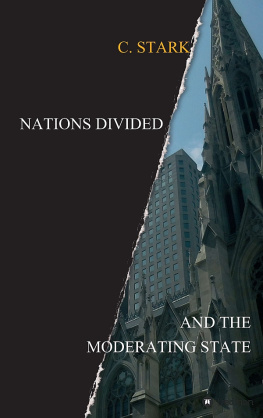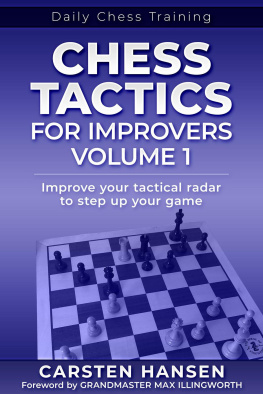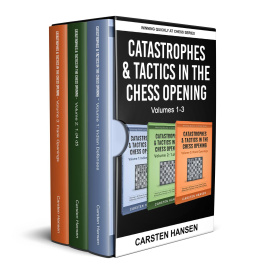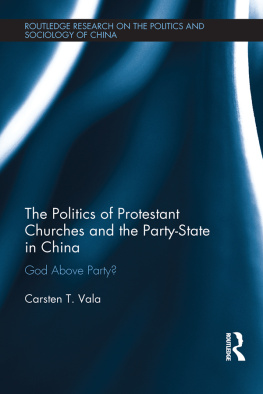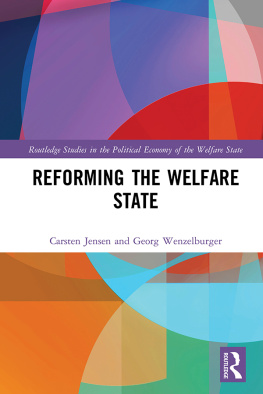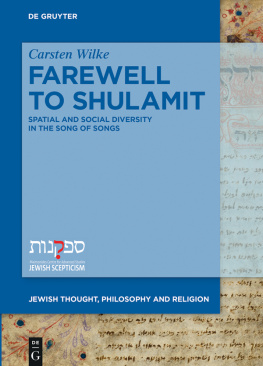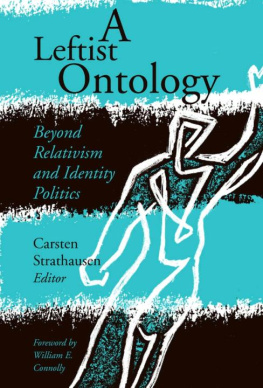Published by tredition, Halenreie 40-44
D- 22359 Hamburg
Carsten Stark 2019
All rights reserved. No part of this book may be reproduced or transmitted in any form or by any means, electronic or mechanical, including photocopying, recording, or by an information storage and retrieval system - except by a reviewer who may quote brief passages in a review to be printed in a magazine or newspaper - without permission in writing from the publisher.
978-3-7497-1462-9 (Paperback)
978-3-7497-1463-6 (Hardcover)
978-3-7497-1464-3 (eBook)
Contents
Cultural Clash and Nations Divided
1 The Personalization of the Political Aspect. On the Rationality of Charismatic Politics
2 The Popularization of the Political Aspect. Democracy is going out of Fashion
3 The Tautology of Functionalist Liberalism
3.1 An Unholy Alliance. Political Liberalism and Sociological Theory of Society
3.2 The Principle of Modernity: Functional Differentiation
3.3 The Disappearance of Ambivalence and the Problem of Reflexive Society
3.4 History as Realization of a Higher Principle
4 Antidotes: Religion and Profession
5 The Liberal Ideology of the Enlightenment Democracy
6 The Disruption of Politics and the New Media
7 Liquid and Smart: The Moderating State and its Inclusion
8 Conclusion
9 References
Cultural Clash and Nations Divided
Liberal Western societies are currently in an existential crisis. This crisis not only affects the political, economic and societal fields, but above all their fundamental legitimation, which is liberal culture. This is why liberal democracies are in an identity crisis. It is impressive to witness how surprisingly this development befalls the political elites. The latter considered themselves the winners of a global historical struggle of political systems at the turn of the millennium and have diagnosed the end of history (Fukuyama 1992). The West has been victorious and all others would follow behind (Fergurson 2011). Doubtlessly, this would take quite a while and one or another rearguard action would be taken, yet the future path was supposed to be outlined. Everything would lead into global and liberal democracy. The liberal elites of the Western world found themselves in their very own story, just as if Gene Roddenberry had written the script for it. The sci-fi series Star Trek supplies the model: The first woman captain of a spacecraft; Russians and Chinese on the bridge together; a Red Indian serving as the first officer; and women kissing each other in public. Beyond mere fiction, however, real developments also looked very promising. The Chinese open up their markets, the Russians hold free elections, the Arabs revolt against their autocrats, Eastern European countries join the European Union, and the US elects a black President who introduces a health insurance system. So does everything turn out better? The current situation looks different. Although the Chinese have opened up their markets, they are still a communist state. The liberal idea that a free economy would almost automatically involve a liberalization of society turned out to be wishful thinking. Chinese state capitalism records tremendous growth rates so that the question arises for the Chinese whether this form of state is not superior to Western democracy anyway. Although the Russians have introduced free elections, they do not actually have a choice. Although the Arabs have revolted, they have widely lost their struggle against the autocrats. While a small urban minority holds on to their dream of a liberal society, the rural majority of the population tended to use their newly found freedom to live out traditional and religious ideas of society. This struggle is fought in Syria, and the losers have already been determined. Although the Eastern European states have joined the European Union, they bring with them their own ideas of what constitutes separation of powers, free press and an integer administration. Long-standing allies and pioneers of liberal democracy in Europe which means the Brits leave the union and take to their heels. This fuels even fears of a resurgence of the Northern Ireland conflict. The British seek allies in the USA, where health insurance has meanwhile been abolished again, and where the government seriously discusses armament of teachers at schools. To quote another famous sci-fi series: The Empire strikes back! But where does this resistance against liberalism come from? Does not any reasonable thought speak for a liberal and democratic societal order? Did not Western democracies prove again and again that they are the best societal order and bound to survive more or less as a result of evolution (Parsons 1966)? In their struggle against the Ancien Rgime, against imperialism, against the Nazis and against the Soviets (Parsons 1972)?
It is downright dangerous to consider this golden path an historical inevitability. Development towards the good is never inevitable. This is not least of all due to the fact that it is highly disputable in societal terms what can be seen as good (Bellah et. al 1992). At this point, Western democracies are threatened to fail for their own ideology. This ideology was created by those supporting milieus that have always benefitted from the process of liberalization: the intellectual and economically active bourgeoisie (Rousseau 1762, Hobbes 1651). The ideology links societys liberalization with the term of rationality (Weber 1921). Any liberal development is related to the rationality from which it is fed. Classical social philosophy speaks about saving of energy (Spencer 1874) or social division of labor (Durkheim 1893), or even about the Golden Age generated by an invisible hand of the free market (Smith 1776). But rationality spreads in many different ways. This is why the process of liberalization has always been linked with the pedagogic claim to bring people onto the path of reason. Being built on rationality, liberal democracies are obliged to enlighten. In the age of an enlightened society, there cannot and must not be any irrational moments. While the rationality of all societal action was related with the liberalization of society, the state and politics gradually adopted the form of an enlightening democracy (Kant 1795). It was only the pedagogic direction of anything liberal, which made it possible to link rationality and democracy. Hence, in liberalisms ideology, the democratic form of the state guarantees the rationality of societal life. Sadly, this is incorrect. Ultimately, the postulate regarding the end of history (Fukuyama 1992) is fed from the tradition of this ideological development of liberalism. But unfortunately, we are not parts of a Star Trek story. We are in real life. Nowhere else is the afore-described conflict as obvious as in the field of religion. Not only does liberalism condemn religion, it even assumes religious traits itself. It is not surprising, therefore, that religion takes a very special meaning for many people in the current situation. This does not only apply to the Bible belt in the USA, to Utah or the Middle East, to Russia, Turkey or India. Contingency is expressed when the rational answers of a reasonable world are described as being possible in a different way. On the faith level, rationality can also look different. News becomes fake news, and facts are opposed to alternative facts. On the faith level, everything is possible in a different way, too. Rational discourse has reached its end, no consensus is in sight, and the clash of cultures has begun. Enlightened elites are exasperated with the stupidity of the voters, and it is precisely this apparent arrogance, which makes even more voters doubt the facts of political elites. In the past century, there was still the firm belief that more education for all groups of society can solve this dilemma. Yet not all supported this idea. For: education is not only expensive, education also creates the relationship of professional actors with differentiated rationalities, and not necessarily a reference to political common welfare. Rationality is also differentiated and depends on the observers viewpoint. What seems necessary in political terms, might be nonsense from the economic angle. What is feasible in science might be objectionable from an ethical perspective, and what appears genial in art might involve an economic disaster. Faith hovers above all this. This does not only mean belief in God and the actual existence of Noahs Ark, but also the belief in rationalitys objectiveness.


